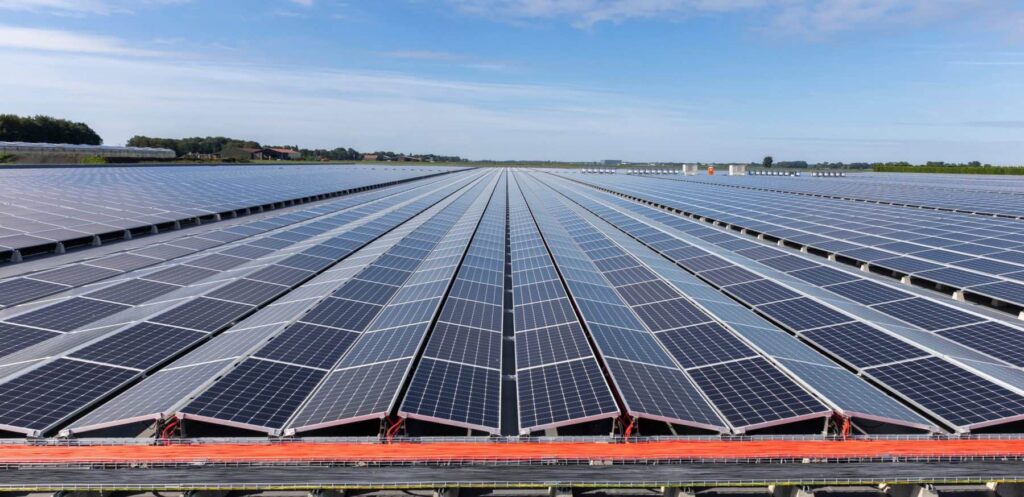The SEC is grateful for the opportunity to provide a submission on the inquiry into the institutional structures, governance, regulation, functions, and operation of the Australian energy market.
The Smart Energy Council (SEC) is the peak independent body for Australia’s smart energy industry, representing over 1,300 residential, commercial, and large-scale renewable generation and storage companies, smart transport firms, as well as the renewable hydrogen and ammonia industry.
We have 70 years of experience on dealing with the Australian energy market, representing the renewable energy industry and with respect to the wide-ranging scope of this review have the following headline points for our submission:
- There have been multiple reviews and reports on the various aspects of energy planning and regulation. We recommend reviewing these recommendations for outstanding areas that should be actioned, including the following:
- Finkel Review, Vertigan Review, Edwards Review, ACCC REPI review.
- There is often an incumbency bias towards the previous energy structures of large, centralised generators.
- The connections process for small-scale and large-scale renewables is sluggish and needs to be made more efficient to ensure Australia achieves at least 82% renewables by 2030. Similarly, there is a need for fundamental reform of renewable energy planning systems, including reform of the Environment Protection and Biodiversity Conservation Act, to ensure renewable energy projects are delivered in a timely manner, whilst protecting Australia’s precious biodiversity.
- With the current and forecast growth of consumer energy, including rooftop solar and battery storage, this needs to be viewed more as an opportunity for the energy system, rather than a burden. The energy institutions and their governance structures reflect a highly risk adverse approach to enabling consumer energy in the grid. The Smart Energy Council is calling for regulatory focus and accountability to make incentivising consumer energy integration into the grid a high priority.
- Some distributed network service providers (DNSPs) are using their monopoly powers with a lack of transparency, leading to adverse outcomes for the renewable industry and energy consumers, particularly in the consumer energy space. As a result, we are calling for an independent review of the role they play in the distribution network, specifically considering:
- their role in facilitating the transition;
- their ability to adapt their business models to facilitate the integration of consumer energy; and
- how existing governance arrangements and regulatory oversight ensure value for energy consumers. (This reflects the submission of leading member company, Nexa Advisory)
- Some distributed network service providers (DNSPs) are using their monopoly powers with a lack of transparency, leading to adverse outcomes for the renewable industry and energy consumers, particularly in the consumer energy space. As a result, we are calling for an independent review of the role they play in the distribution network, specifically considering:
- A managed gas network phase-down plan to ensure that as the country electrifies into a lower cost, healthier and reduced emissions system.
- The Smart Energy Council recommends the Australian Government significantly increase resources in the Australian Department of Climate Change, Energy, Environment and Water (DCCEEW)through the establishment of a national Consumer Energy Office. This office will develop policy work to ensure the right incentives and standards for consumer energy. This will ensure that home electrification and helping families to slash their power bills is at the centre of Government policy and carries an appropriate level of weight in energy planning and regulation operations.
- AEMO should remain an independent institution as the market operator of the energy grid. Their independence is crucial to a competitive power system.
However, AEMO must have transparency and accountability to primarily, the Federal Energy Minister, as well as all State Energy Ministers through the forum of the ECCMC.
AEMO should also have a formal process as part of their governance arrangements whereby they must appear before Senate Estimates as well as for any applicable Senate inquiry.
- The Smart Energy Council supports the Nexa Advisory submission that supports the establishment of an independent review of the Boards or commissions of all energy agencies, including the AER, AEMC, AEMO and Energy Consumers Australia – “to ensure alignment with the strategy, clarity of roles, that they have the right mix of skills and knowledge and are appropriately independent and fairly represent the renewable energy industry.” (Nexa Advisory Submission)
- There needs to be clear roles and priorities for market bodies and regulators, including around their Governance and engagement.
- Across all of the covered institutions and energy bodies, the representation of innovators and investors must be strengthened to better reflect the rapidly changing industry.
- We are calling for a refreshed Statements of Expectations for the AEMC, AER and AEMO. These should be reviewed annually to ensure they are strategically aligned, with the performance of the market bodies regularly reviewed and monitored against them.
- The Smart Energy Council supports Nexa Advisory’s calls for the establishment of a new, independent consumer voice representing the interests of new energy consumers within policy and decision-making.



